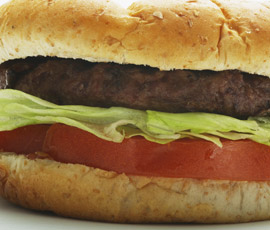Horsemeat: consumer trust will take time

Consumer trust in the supply chain may take a while to be rebuilt following the contamination of beefburgers with horsemeat, warned Adam Leyland, editor of The Grocer.
Speaking at the Sentry Conference today (Wednesday 6 February), Mr Leyland said he could fully understand why consumers were worried about GM and wary of where food comes from. He also believed the timing of the horsemeat scandal was disappointing, because there had been a tiny improvement in consumer sentiment towards GM and the latest food scandal might disrupt that.
“Consumers have a right to be wary. We are told this is the most sophisticated and safety-conscious supply chain in the world,” he said. ” We tell ourselves we do it very well and yet here we are knee-deep in horse poo. Trust in the supply chain has once again been breached. These scandals expose the complexities of our global supply chains.”
Mr Leyland added that with intense competition and pressure in the system, it was inevitable corners were cut. “The cheaper the food, the harder it is to trace,” he said. He also warned that cheap food production would go on while supermarkets demanded it.
Delegates were told that consumers were buying less as a result of the recession and trading down to more own label products. For the second consecutive year, volume sales of groceries have fallen by 2.5 % and suppliers have felt the pinch. Mr Leyland pointed to several casualties of the downturn such as Vion, which is pulling out of the UK; Robert Wiseman, which merged with Muller, and Premier Foods, whose share price had collapsed from £3 to 10p.
The major food retailers have also been challenged by the downturn. “The returns delivered by supermarkets have been awful for the amount they have invested in store expansion. Their investment has resulted in a relatively small increase in profit. It’s been a disaster.”
As a result, Tesco and Sainsbury have cut their store expansion programmes and have developed more aggressively online. In contrast, upmarket retailers like Waitrose had performed strongly as consumers chose to treat themselves by dining in rather than eating out.
Mr Leyland added that the discounter retailers were also doing well in the downturn, with Aldi growing by 30% year on year, even without an online shopping system. There was also evidence that Iceland and Poundland were taking a bigger piece of the grocery pie as consumers use their stores for topping up.
The appointment of grocery trade adjudicator Christine Tacon was described as “reassuring for suppliers” by Mr Leyland, but he warned producers that “she will not dig you out of hole you dug yourself”.
“There are plenty of ways for supermarkets to exert pressure on suppliers without flouting the code of conduct. You have to understand all the tricks of the trade and negotiate skillfully,” he said.
